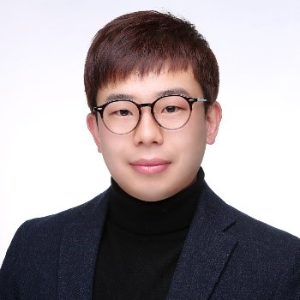Title : Parametric study on steam reforming of methane to syngas with Ru/Al2O3 catalyst in an annular reactor
Abstract:
It was reported that CO2 emissions (2.6 Gt/y) of the steel industry account for approximately 7% of the global value in 2020 by IEA. It is necessary to reduce CO2 emissions in the steel industry to achieve net-zero by 2050. In 2022, the Korea LCP research center was launched to develop low-carbon chemical process, which makes olefins by using steel off-gas (BFG: blast furnace gas). The total process is as follows: BFG + syngas → methanol → olefins.
Steam reforming of methane is the most economical way to produce hydrogen-rich syngas for methanol. The key design issue for maximizing reforming efficiency is to promote the balance between heat input through the reformer tube surface (heat transfer rate) and the heat consumption by the endothermic reaction of steam reforming (kinetics). Therefore, it is very important to optimize internal heat exchange between heat sources (flue gas, syngas) and sinks (water, NG, air).
The reformer module consists of desulphurization bed, steam reforming reactor, plate heat exchangers, and vapor/liquid separator. The annular reactor for steam reforming includes SG (steam generator), SH (super heater), and internal heat exchanger to decrease heat loss. The parametric study was carried out to determine the optimal syngas composition (H2/CO/CO2 = 10.8/2.2/1.0) for the methanol synthesis using the steel off-gas. The experiments were conducted at a constant pressure (4.0 barg). The effect of temperatures (830, 840, 850 °C) and S/C ratios (2.4, 2.6, 2.8, 3.0) were investigated to find the optimum conditions. This system has syngas production capacities of 12 Nm3/hr with 77.1 LHV% reforming efficiency.
Audience Take Away
- Design of annular reactor for steam methane reforming with a heterogeneous catalyst
- Process intensification to improve the reforming efficiency and compactness
- Operating issues of reforming module (high temperature resistance, burner stability et al.)
Parametric study to determine the optimal syngas composition for methanol synthesis



